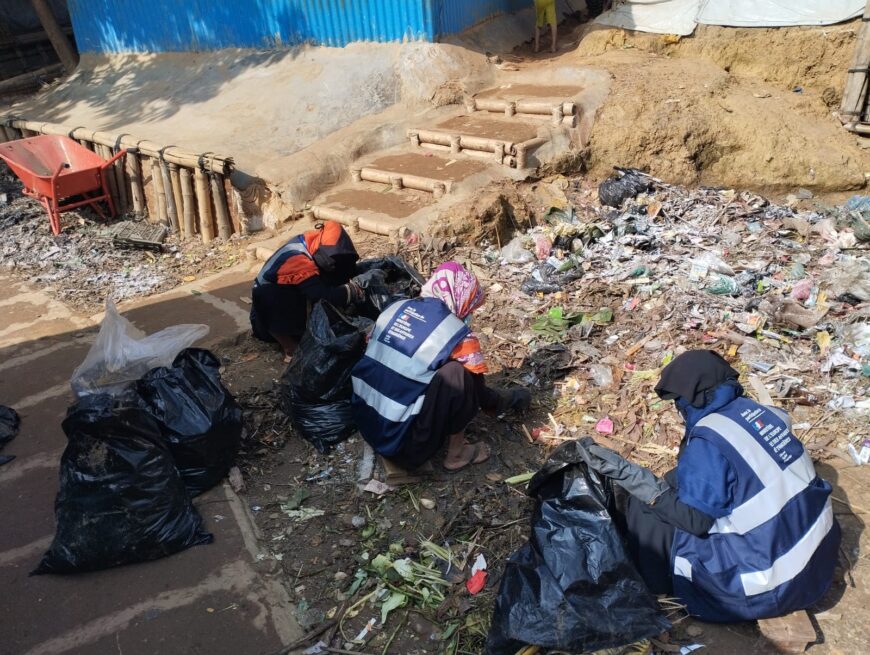Acted implemented a CDCS-funded and SUEZ Foundation co-funded project in 3 UNHCR-managed camps—1E, 3, and 4—at the Kutupalong-Balukhali Expansion Site in Cox’s Bazar from March 2023 to May 2024, addressing critical hygiene and waste management gaps for Rohingya refugees. Acted trained refugees to produce reusable sanitary pads and undergarments, distributing them to 9,000 women through Menstrual Hygiene Management (MHM) kits. Acted launched solid waste collection and segregation initiatives to improve sanitation, installing dustbins and facilitating waste transport to primary dumping stations. Volunteers, organized into hygiene brigades with 50% female participation, collected and segregated 58,479 CFT of waste. This community-led effort enhanced hygiene and empowered residents, supporting environmental sustainability in the camps.
Across the Cox’s Bazar camp settlement in the Kutupalong-Balukhali expansion site, Rohingya refugees face challenges in terms of access to essential services, critical non-food items (e.g. hygiene products, MHM kits), and income-generating opportunities. For female Rohingya refugees, the lack of income is particularly acute. The public health situation in camps remains dire for refugees due to significant WASH-related gaps such as limited waste management facilities, garbage accumulation in public places and drainage networks. These gaps aggravate the already fragile situation in camps in terms of public health risks, environmental degradation, and devastating natural disaster risks. Additionally, Rohingya women continue to report having insufficient and poor-quality menstrual hygiene items due to the inadequate access to hygiene and menstrual hygiene-related items.
To sustainably improve the situation, Acted found inspiration from its previous pilot project funded by CDCS to conduct reusable sanitary pad production training, using locally available materials. The second step was to integrate the produced reusable hygienic pads to menstrual hygiene management kits distributed to women and girls in camps, covering for the existing high needs. Acted also wanted to support the waste management efforts in the camps through the creation of waste management brigades to improve waste collection and management systems and sensitize camp residents to sanitary waste management methods.
In this project, Acted has trained 52 women on the reusable sanitary pad and undergarments production. They have produced 60,200 sanitary pads and 30,100 undergarments. Acted then distributed Menstrual Hygiene (MHM) kits, produced by women through Cash for Work (CfW) activities, to 9,000 menstruated women and girls. To enhance waste management Acted has engaged 39 Waste management brigade volunteers and conducted 36 hygiene campaigns throughout the project.
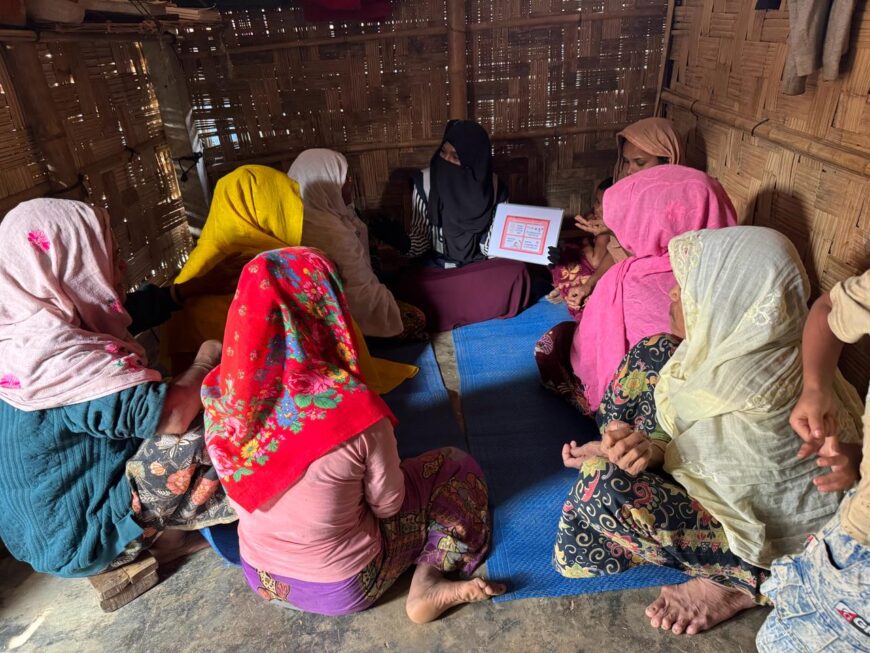
Women's skills development and training for the production of MHM kits
This project was initiated for the sanitary improvement of Cox’s Bazar’s Rohingya refugee camps 1E, 3, and 4. Skills–building training on producing reusable sanitary pads facilitated through the cash-for-work (CfW) modality was a significant livelihood activity for the project. Acted established a production center in UNHCR–managed camp 4 equipped with 46 machines and tools to continue production of Menstrual Hygiene Management (MHM) kits following UNHCR recommendation. 52 trainees, all women, were selected with household verification support from Site Management Support (SMS) agencies of the respective camps. Organized in 2 batches of 26 participants each, the women started their skill development in sewing and machine operation for two months. The whole training programme was under expert supervision to prepare women for the production of the kits.
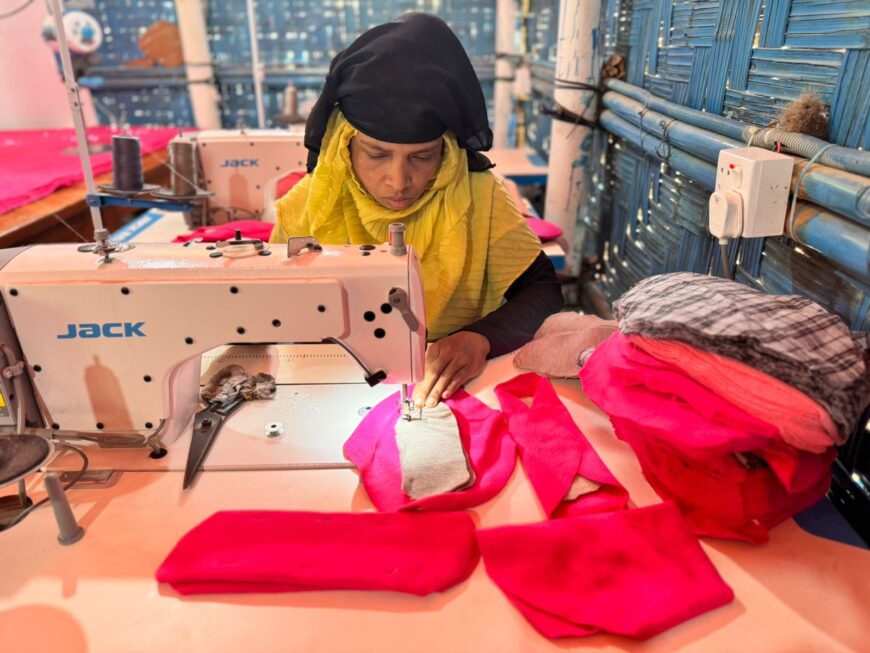
Production of MHM kits and distribution to vulnerable women and girls
Acted distributed the produced undergarments and sanitary pads to 1E, 3, and 4 camp residents. In January and May of 2024, the kits were distributed. Each kit contained reusable sanitary pads, undergarments, washing powder, cloth drying clips, a user manual, and eco-friendly paper bag. 60,200 sanitary pads and 30,100 undergarments were produced by the trained women and then distributed to 9,000 individuals.
Beneficiaries for the distribution were selected based on vulnerable criteria outlined in the approved CDCS criteria, including single-headed households, persons with disabilities (PwD), women recently relocated from other camps, previous recipients of hygiene kits, households with no income source or inadequate family support to purchase menstrual materials, pregnant or lactating women, and women with specific needs.
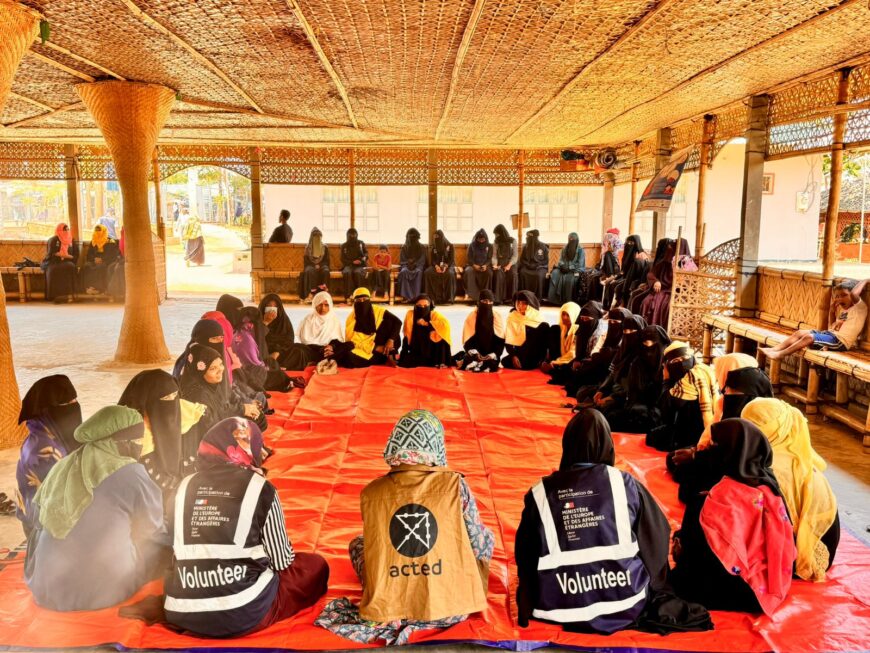
Waste Management Brigade in action
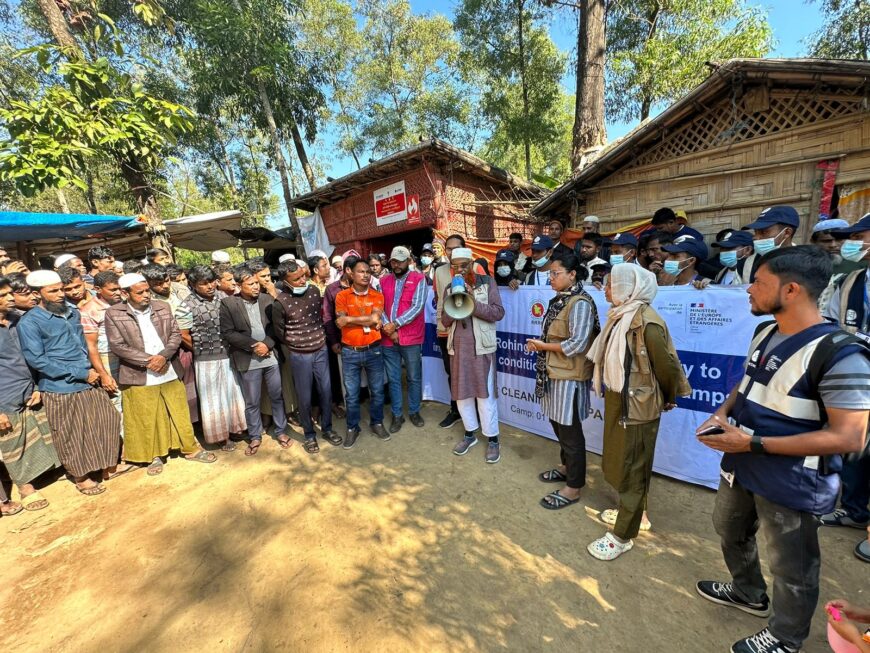
Acted has connected with 39 camp residents from the target camps to develop camp-level waste management brigades. The brigade members were responsible for disseminating information about waste management and hygiene awareness within the camp community. Among these members, some were from the Rohingya community and others from the host community residing near the camps. Acted had the camp’s brigade comprising members (50% women, 50% men) support waste collection. Through coordination with WASH partners in the targeted camps, Acted was assigned two subblocks from each camp for the waste management activities by the WASH sector and UNHCR out of 21 subblocks of these camps, ensuring a more impactful and efficient approach. For solid waste collection Acted installed 240 L dustbins with rollers and facilitated waste transport to primary dumping stations. Throughout the project, Acted collected 58,479 cubic feet of waste including 43,425 cubic feet organic and 15,054 cubic feet inorganic. Acted conducted 36 cleaning campaigns in collaboration with the WASH sector during the project period and achieved significant community engagement and participation in the cleaning activities. The WASH management brigade members benefitted from financial support, following the guidelines of ISCG and the Bangladesh government.
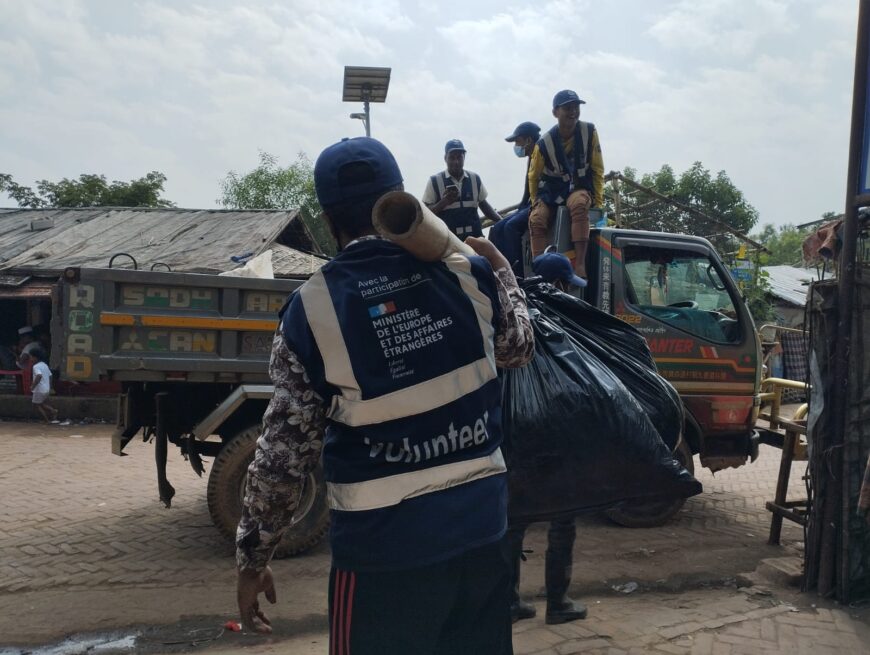
Waste Management Brigades awareness sessions
Acted conducted community focus group discussions to identify gaps and areas requiring cleaning efforts. Every week, the waste management brigade organized community sessions from Sunday to Thursday to raise awareness on hygiene within the community. 14,097 girls between 10-17 years old and 28,375 women over 18 years old were reached through information sessions held by the waste management brigade. Additionally, 11,563 boys between 10-17 years old and 24,696 men older than 18 were reached through the waste management brigade’s information sessions. These 78,731 individuals benefited from the hygiene-related information sessions and have effectively strengthened their knowledge on the topic.
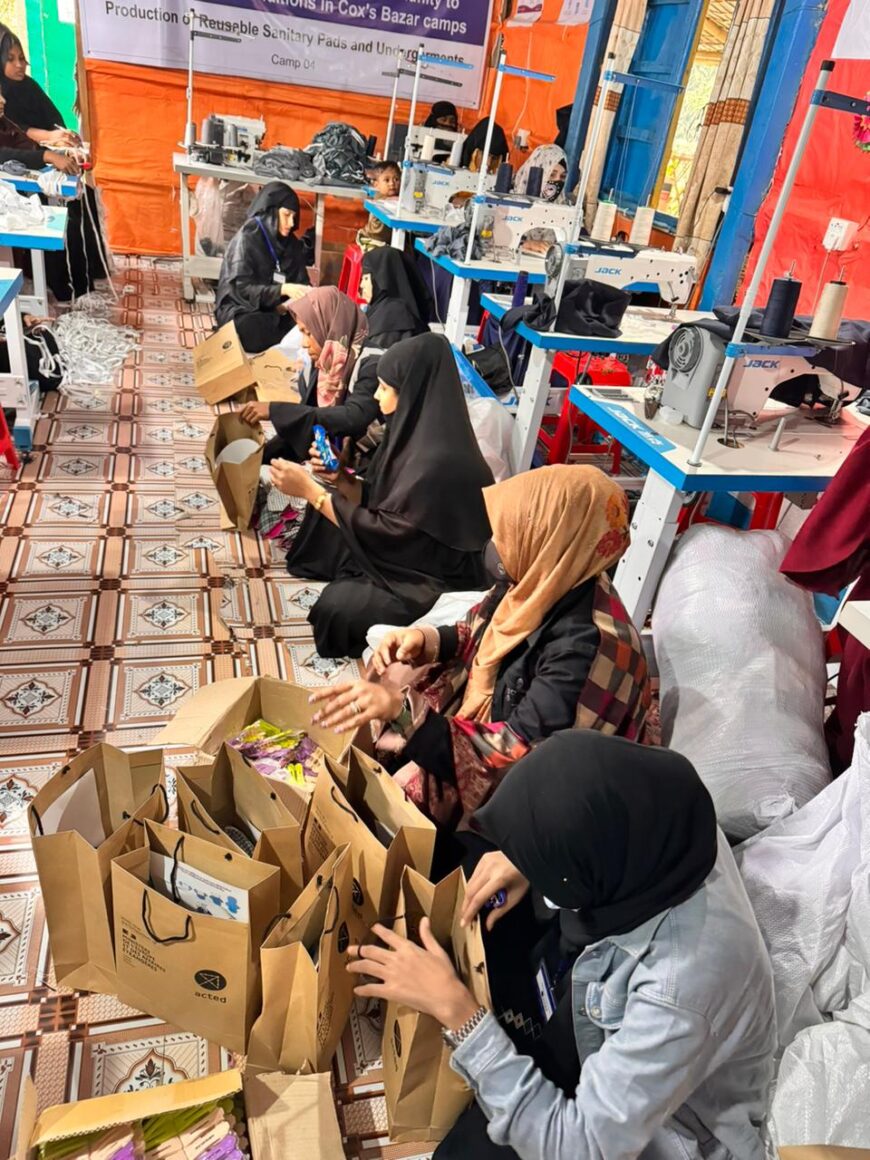
In conclusion, Acted’s initiatives, supported by CDCS and SUEZ Foundation, in the Cox’s Bazar refugee camps have significantly contributed to improving public health, waste management, and menstrual hygiene among vulnerable Rohingya populations. By training 52 women in the production of reusable sanitary pads and undergarments, Acted empowered them economically and helped address a critical gap in menstrual hygiene support, reaching over 9,000 women and girls with essential supplies. Simultaneously, the establishment of waste management brigades and the installation of waste bins have greatly enhanced waste collection efforts, improving sanitation in the camps and reducing health risks for nearly 80,000 individuals.
Looking ahead, these interventions lay the groundwork for long-term improvements in hygiene practices, environmental protection, and the overall health of camp residents. The skills gained by women in sewing and machine operation open opportunities for sustained livelihood generation, while the waste management systems and community engagement foster a culture of cleanliness and public health awareness. As these activities are scaled and integrated with ongoing efforts, they will continue to positively impact the quality of life in Cox’s Bazar, fostering greater resilience, dignity, and empowerment among the Rohingya refugees and host communities alike. In continuation of these activities, and with support from CDCS, Acted is implementing a project in 2024-2025 to support the Rohingya community in Cox’s Bazar camps by improving sanitary conditions through training and awareness activities.
